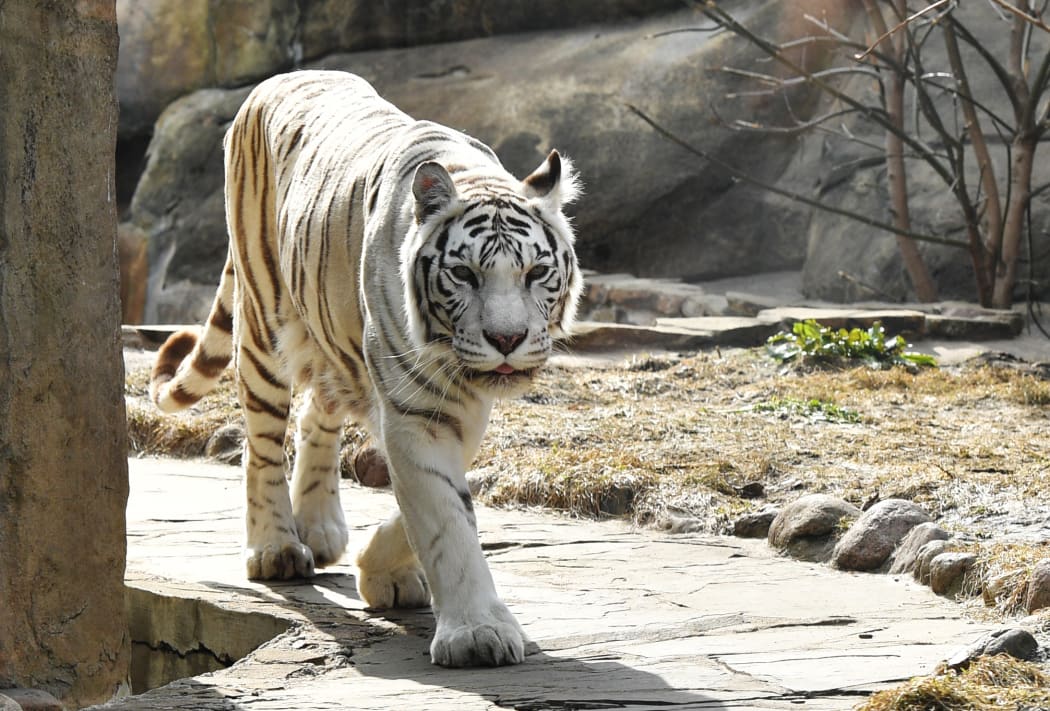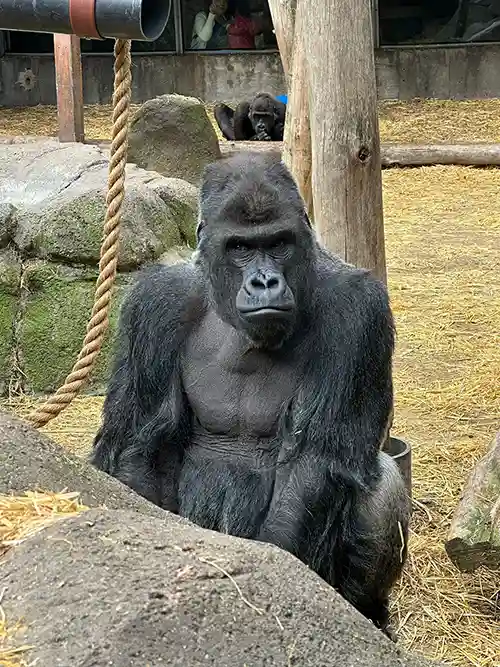How To Become A Zoo Keeper?
« The success of a nation and its moral development can be evaluated by the way its animals are dealt with. » – Mahatma Gandhi
Do you like animals and imagine working in a zoo? Zoo keepers are key in safeguarding wildlife and caring for animals. At places like the Zoological Society of London (ZSL), over 20,000 animals get the care they require from specialists.
To become a zoo keeper, you require effort, education, and a love for animals. This job is exciting, letting you deal with many types and help with important conservation work. If you’re into wildlife or animal welfare, zookeeping might be ideal for you.
Beginning your zoo keeper profession means discovering what’s required. This guide will cover education, experience, and more. It’s all you require to understand to start a fulfilling zookeeping career.
Understanding the Role of a Zookeeper
Exploring what a zookeeper does reveals a role filled with difficulties and benefits. They focus on animal welfare and preservation. Zookeepers work hard to keep animals healthy and delighted in their care.
Daily Responsibilities and Tasks
A zookeeper’s day is filled with essential tasks:
- Preparing meals that satisfy each animal’s dietary requirements
- Cleaning enclosures to keep them tidy and safe
- Supervising animal health and behaviour
- Giving medications and treatments as needed
- Creating activities to keep animals psychologically sharp
Workplace and Conditions
Zookeepers work outside in all type of weather. They handle both indoor and outdoor spaces. The job needs being physically fit and able to manage the needs of caring for animals.
« Being a zookeeper is more than a task – it’s an enthusiastic commitment to animal care and conservation. »
Kinds of Animals and Specialisations
Zookeepers can specialise in many animal groups:
- Primates
- Big cats
- Marine mammals
- Reptiles
- Birds
Your function may involve dealing with 2-5 various animal types. This needs a lot of understanding and the capability to adapt.
Vital Skills and Personal Qualities for Zoo Keeping
To be a leading zookeeper, you require more than just a love for animals. Your task will be tough and require you to deal with animals and people well. You’ll likewise require to understand animal behaviour.
What zoos look for in individuals consists of:
- Exceptional patience and psychological resilience
- Strong physical fitness and endurance
- Keen observation skills
- Ability to remain calm under pressure
- High level of compassion towards animals
Getting hands-on experience is key to mastering this function. You’ll require to reveal:
- Advanced understanding of animal care strategies
- Efficiency in animal handling and safety procedures
- Efficient interaction with both animals and human visitors
« A terrific zookeeper links science, compassion, and preservation in every interaction with animals. »
You must understand about animal nutrition, behaviour, and fundamental veterinarian care. Most zookeepers learn through training, volunteering, and ongoing knowing.
Zookeeper work is not simply a task. It’s a big dedication to teaching about wildlife and helping conservation. Your enthusiasm and effort will make you stand out in this satisfying career.
How to Become a Zoo Keeper
Starting a career as a zookeeper needs and education. You should initially understand the instructional needs and training paths. These will turn your love for animals into a task.
Educational Requirements
To be a terrific zookeeper, you require a strong scholastic base. The majority of tasks try to find certain credentials:
- At least 5 GCSEs at grade 4 or above, consisting of English, maths, and science
- A levels or college credentials
- A college degree in biology or animal science
- Level 3 Diploma in Animal Management
Required Certifications
Getting unique accreditations can really assist you in your zookeeper profession. Crucial ones include:
- Diploma in Management of Zoo and Aquarium Animals (DMZAA)
- Zookeeping Level 3 Diploma (RQF)
- Animal managing certificates
- Emergency treatment qualifications
Training Programs and Apprenticeships
Getting hands-on experience is key in zookeeper training. Many locations offer excellent possibilities:
- Unpaid apprenticeships at wildlife parks
- Internship programmes at popular zoos
- Practical training at locations like Colchester Zoo and Dartmoor Zoo
- Offering to gain real-world abilities
Pro pointer: Create an in-depth portfolio to show your animal care abilities. It will help you in job applications.
Building Relevant Experience in Animal Care
Gaining hands-on experience is crucial for those wishing to be zookeepers. The task is very competitive. So, it’s important to begin building a strong base in animal care.
Your journey starts with finding ways to work directly with animals. This is a strategic action.
« Experience is the best teacher in animal care » – Wildlife Conservation Experts
Here work methods to get experience dealing with animals:
- Volunteer at regional animal shelters to establish basic animal handling abilities
- Seek internships at wildlife rehabilitation centres
- Check out part-time positions at veterinary clinics
- Contact your local zoo for possible volunteer opportunities
Volunteering is an excellent method to find out about animal behaviour and care. Many zoos and animal shelters are trying to find individuals who want to learn. These locations provide great possibilities to get hands-on experience and reveal your devotion to animal welfare.
Here are some suggestions to make the most of your experience:
- Keep a record of your abilities and interactions
- Get in touch with specialists in animal care
- Request for recommendations and zookeeper letters of recommendation
- Stay persistent and reveal your true passion
Keep in mind, useful experience makes you stand apart in the zookeeping world. Whenever you deal with animals, you find out more. This increases your chances of getting a job in animal care.
Profession Pathways and Professional Development
Beginning a career as a zookeeper is exciting. It offers numerous chances to grow and specialise. Your journey begins with comprehending the different courses in this field.
Entry-Level Positions
Entry-level jobs in zookeeping are a terrific start. They give you hands-on experience. Zoos look for prospects with:
- Level 2 Diploma in Animal Care (minimum credentials)
- GCSEs in English and a scientific subject
- Volunteer experience at animal shelters or farms
Career Progression Opportunities
As you gain experience, your career can grow. You can go up to:
- Junior Keeper
- Senior Keeper
- Team Leader
- Expert Roles
« Continuous knowing and useful experience are crucial to advancing in your zookeeping profession. »
Specialised Roles
You can also pick unique areas like:
- Conservation reproducing programs
- Animal training
- Wildlife research
- Educational outreach
About 25% of zookeepers get advanced degrees in zoology or animal preservation. Getting Level 4 certifications can enhance your chances for senior functions and research study.
Working Hours and Physical Demands
Ending up being a zookeeper means you’ll work more than simply regular hours. You’ll deal with tough physical challenges and require to be versatile, including weekends and holidays. Zoos are open every day, so you’ll frequently work when others unwind.
« Zoo keeping is not a typical 9-to-5 task– it’s a lifestyle of devoted animal care and commitment. »
This job is physically demanding. You’ll work outside in any weather condition, lifting heavy products over 50 pounds. Your tasks might consist of:
- Early morning feeding schedules
- Cleaning animal enclosures
- Preparing specialised diets
- Performing health checks
- Maintaining complex habitats
Shifts can begin as early as 5 AM and go late into the night. You’ll be on your feet the majority of the time, moving between animal zones. Weekends and holidays belong to the task, requiring lots of endurance and commitment.
In spite of the obstacles, this task has great benefits. You’ll grow strong, both physically and mentally. You’ll also make amazing connections with incredible animals.
Health And Wellness Considerations
Being a zookeeper includes its own set of obstacles. It’s crucial to understand how to keep both animals and personnel safe. This means following stringent health and safety rules.
Zookeepers face an unique environment where safety is crucial. Research studies reveal that health and safety are now as essential as the zoo’s primary work.
Risk Management Strategies
There are numerous ways to handle dangers in zoos:
- Daily checks of animal enclosures for zookeeper dangers
- Counting animals at the start and end of shifts
- Enjoying how visitors act near animals
- Being ready for emergencies
Animal Handling Safety Protocols
Knowing which animals are most unsafe is important. Big animals like rhinos can be extremely risky. There have actually been cases where zookeepers got seriously hurt.
Safety isn’t just about using gear – it’s about understanding animal behaviour and staying alert.
Personal Protective Equipment
Zookeepers need to use the best gear, including:
- Special gloves for handling animals
- Strong shoes for grip and security
- Clothing that secures versus bacteria
Getting immunized against diseases like liver disease B and rabies is also key. It helps keep zookeepers healthy in their tough job.
Income Expectations and Job Market
Thinking about a career in zoo keeping? It’s essential to know about incomes and the task market. The field is growing, with more opportunities in the UK.
Let’s take a look at what zoo keepers can earn at different phases:
- Entry-level zookeepers begin at about ₤ 14,000 a year
- Certified ones make in between ₤ 16,000 and ₤ 22,000
- Senior zookeepers can earn as much as ₤ 30,000 or more
The task outlook for zoo keepers is excellent. The sector is anticipated to grow by 5% in the UK by 2029. This means around 3,910 new jobs will be available.
« The Association of Zoos and Aquariums supports expert growth for zoo keepers, » a report says.
Incomes differ based on a number of things:
- Experience level
- Specialisation
- Where you work
- The zoo’s size and type
While the pay may not be high, the delight of dealing with animals is valuable. The typical income is around ₤ 17,000. However, overall profits can be between ₤ 13,000 and ₤ 27,000 a year.
Conclusion
Starting a career in animal care is an interesting journey. It needs dedication, passion, and a love for learning. With over 350 zoos and wildlife places in the UK, there are many task opportunities. You’ll get to deal with fantastic animals and help protect wildlife.
To be a zoo keeper, you need more than just love for zookeeper animals. You need to have a good understanding of biology, be able to communicate well, and constantly want to discover more. You’ll gain hands-on experience, learn more about animal welfare, and establish a deep regard for nature. About 3,000 people in the UK have actually found satisfying careers in this field.
Your success in zoo keeping originates from mixing science with a love for animals. Whether you’re interested in mammals, birds, or marine life, this task lets you help with conservation. Every day will bring brand-new challenges and learning opportunities that will enhance your skills and knowledge.
If you like animals and want to help secure wildlife, zoo keeping might be for you. Handle the obstacle, stay curious, and turn your enthusiasm for animals into a rewarding profession.





